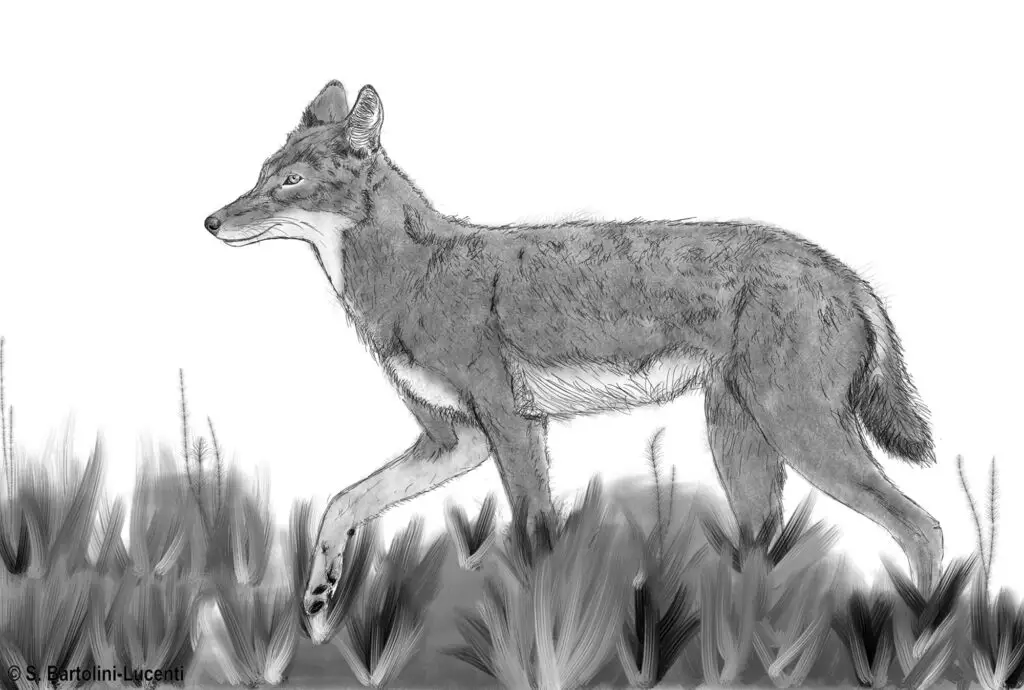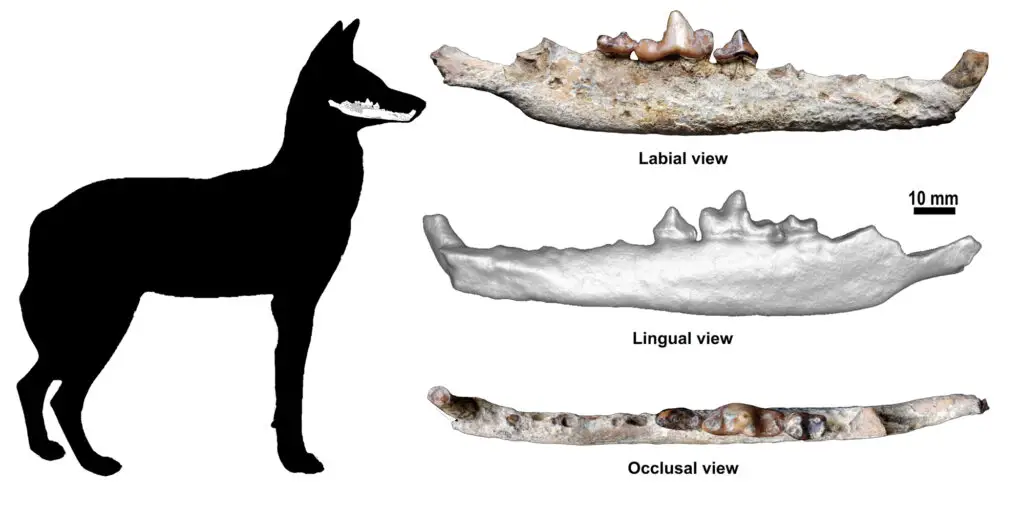The world’s only known Ethiopian wolf fossil dating back 1.5 million years could save the endangered species, experts say.

The Ethiopian wolf (Canis simensis), also known as the Simien jackal or Simien fox, is in danger of extinction, with only 500 individuals left despite their species dating back at least 1.5 million years.
Now scientists say that the only Ethiopian wolf fossil in the world could yield precious information to help prevent the species from going extinct.
The discovery was made in 2017, with the findings now being published in the prestigious academic journal Communications Biology.
Newsflash obtained a statement from the Catalan Institute of Human Palaeoecology and Social Evolution (Institut Catala de Paleoecologia Humana i Evolucio Social) on Tuesday, 16th May, saying that the “palaeontological discovery may help the future survival of this species.”
The statement said: “This palaeontological finding has been key to modelling the bioclimatic niche of the Ethiopian wolf.
“Based on the data provided by the current populations of the species, an ecoclimatic model has been generated and applied over time since the first arrival of the Ethiopian wolf on the African continent, describing the conditions necessary for its survival and highlighting its resilience through climatic cycles, in favourable and unfavourable conditions.”
The experts said their model suggests that the species could only have survived in the Ethiopian highlands.
The statement said: “The model suggests that Canis simensis could have survived only in the highlands of Ethiopia. As at present, in the past, Ethiopian wolf populations would have faced significant challenges that would have driven them to near extinction during warm climatic moments, drastically restricting them to the higher mountain areas.

“In contrast, during cold periods, both their geographical distribution and the size of their populations increased considerably, reducing the degree of spatial fragmentation and isolation of populations.”
The experts said that despite conservation efforts, “the situation of the Ethiopian wolf is critical”.
The statement said: “The importance of the Melka Wakena fossil lies in the fact that, for the first time, very relevant data are available to know how the adaptation of this wolf species has occurred in the highlands of Ethiopia over a long time.
“At the same time, monitoring the climatic evolution of the habitats occupied by this species of canid makes it possible to build future scenarios for its survival in conditions of extreme danger of extinction.
“The projections range from the most pessimistic future conditions to the most optimistic and indicate a significant reduction in all habitable territories, which are already very deteriorated.
“These results highlight the need for increased conservation efforts to safeguard the remaining fragmented habitats occupied by this ecologically specialized and highly threatened species.”
The study involved researchers from Spain, Israel, Italy, Ethiopia and the United States.



